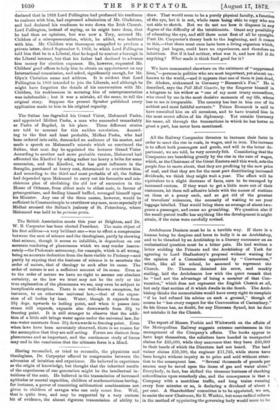Having reconciled, or tried to reconcile, the physicists and theologians,
Dr. Carpenter offered to compromise between the advocates of intuition and experience. He believed in experience as the origin of knowledge, but thought that the inherited results of the experiences of one generation might be the intellectual in- tuitions of the next. He believed in the transmission of increased aptitudes or mental capacities, children of mathematicians having, for instance, a power of conceiving arithmetical combinations not given to children of savages who can only count five. Well, that is quite true, and may be supported by a very curious bit of evidence, the almost rigorous transmission of ability to draw. That would seem to be a purely physical faculty, a function of the eye, but it is not, whole races being able to copy who are not able to sketch. But we do not see how it disposes in any degree of the difficulty of the intuitionists. Grant any possibility of educating the eye, and still there must first of all be eyesight. Push Dr. Carpenter's theory back to the beginning, and it comes to this,—that there must once have been a living organism which, having just begun, could have no experiences, and therefore no intuitions. But if it had neither, what was it, and how did it do anything? What made it think food good for it?


































 Previous page
Previous page